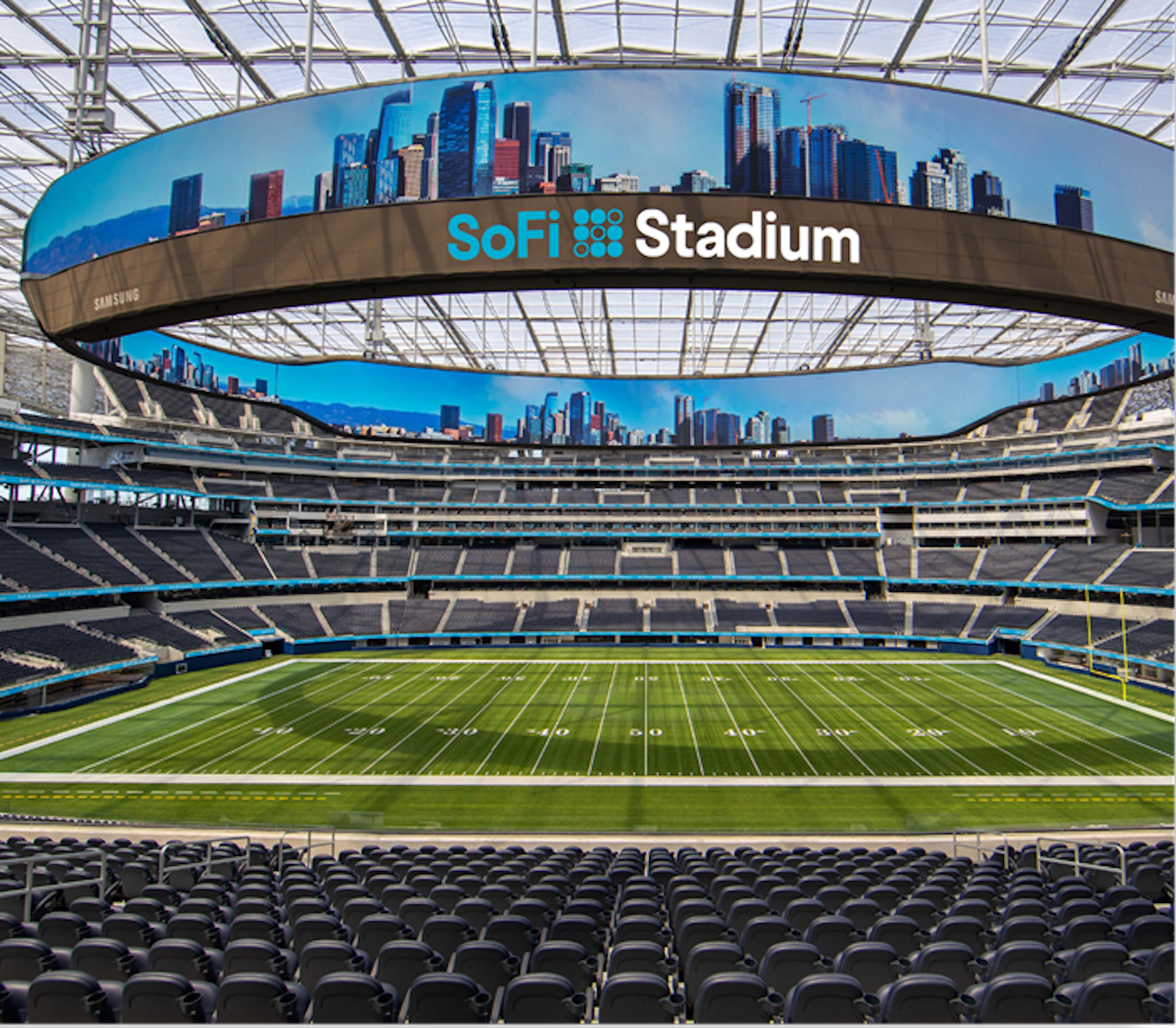Revolutionizing stadium operations: Unlocking efficiency with cutting-edge digital solutions
An efficient stadium makes it enjoyable for fans and the front office alike. But keeping a venue running like clockwork while entertaining tens of thousands of visitors requires a holistic operational ecosystem, where each link in the chain supports the next. What may sound like a logistical headache can become a smooth, stress-free experience that requires minimal effort for maximum efficiency.
Through the integration of advanced technology, today’s stadiums can ease operations by providing venue operators with site-wide visibility, clearer communication with visitors, and more effective staff management. In fact, smart stadium technology can transform the entire fan experience, making the event more memorable and appealing for return visits. Here’s how.
Crowd management solutions
As venues become more digital, many stadiums’ operations have evolved to include LED displays for informative signage and wayfinding. Samsung’s vivid, eye-catching screens clearly communicate what visitors need to keep traffic flowing. This applies to both foot and car traffic, as large outdoor displays can direct cars to parking lots and drop-off points, helping to reduce congestion and confusion.
Drive revenue by surpassing venue expectations
Explore digital opportunities to deliver more immersive experiences and increase fan loyalty.
Download Now
When a venue has connected technology, sensors placed at entry points and key areas can monitor crowd data and communicate with backend software to automatically inform fans of estimated wait times. The screens can also direct crowds to the shortest lines, which can help reduce bottlenecks and speed up traffic in the stadium. That’s especially important at arrival, as event venues can present crowded entrances and long lines.
Interactive touchscreen displays give venue operators more opportunities to streamline visitor entry. For example, Samsung Kiosks placed at security checkpoints can scan digital and physical tickets for an efficient entrance. The frictionless process also lessens the need for staff at every gate, allowing more strategic placement of human resources. Furthermore, increasing throughput enhances safety and security by reducing crowding at hotspots.
Inside the stadium, a network of displays throughout the concourses directs fans to their seats, the restrooms, and the nearest food and beverage options. Thanks to a faster entry process, fans have more time to enjoy amenities within the venue, increasing event day revenue.
Behind the concessions counter, large Samsung LCD video walls can clearly advertise menus, so customers can read at a distance, not just when they get near the counter. Digital menu boards can also help fans in the queue make their selections before reaching the counter, again, speeding traffic. Self-service kiosks for ordering can make it go even faster. During game breaks or event intermissions, screens can also direct customers with preordered concession items to the correct pickup location.
Exit strategy
Crowd flow is easier to manage before the event starts as fan arrival is staggered over several hours. The real challenge comes at the end of the event when everyone in the stadium leaves simultaneously. Operations and security teams can alleviate this stress with digital signage by diverting fans from pinch points to other exits.
Wayfinding digital signage throughout the venue might also encourage fans to stick around after the event, whether for a special deal at the team store or live entertainment in the promenades. This more flexible approach staggers traffic flow out of the stadium and adds to fan satisfaction by offering unique, in-person experiences they can’t get at home.
Action, not reaction
In an emergency situation, venues with the right technology can respond with crucial speed. An intuitive, connected system for operations and security teams enables them to make instant, data-driven decisions, relayed via venue-wide displays for maximum visibility. In addition, should a fan fall ill during an event, operators can use individual displays to draw a direct line to first responders. In the event of an evacuation, high-resolution digital signage makes it easy for operations teams to quickly display protocols and safely direct crowd flow out of the venue.
In less extreme cases, such as inclement weather that could delay the event, preparation is key. Venue managers can use signage-integrated data analytics to prescribe plans of action ahead of time rather than having to respond reactively. They can also take advantage of deploying dynamic content using a feature-rich content management platform to keep restless waiting fans entertained.
On a fully connected IPTV platform, which functions like a stadium OS, operators can unite all their individual systems — venue ticketing, security, inventory, logistics, fan appreciation and even the game data feed — into a single multipurpose solution. In a connected system, all the previously separate elements can communicate with each other, giving venue operators unprecedented and fully consolidated visibility.
Making the in-person experience essential
From entry to exit, digital displays combine with integrated data to deliver streamlined operations, helping to ensure security and safety throughout an event venue. Simultaneously, venue operators can use the displays’ advanced operational intelligence to keep visitors as informed as they are entertained. That’s important because, with increasing competition from home entertainment, the decision to travel to the stadium or watch from home becomes harder. Having state-of-the-art digital technology to enhance the efficiency of event operations will help entice more fans to embrace the in-person game day experience.
Discover new ways venues are driving revenue and fan loyalty through smart technology in this free white paper. Also, learn why flexibility in entertainment venues has become more important than ever.
